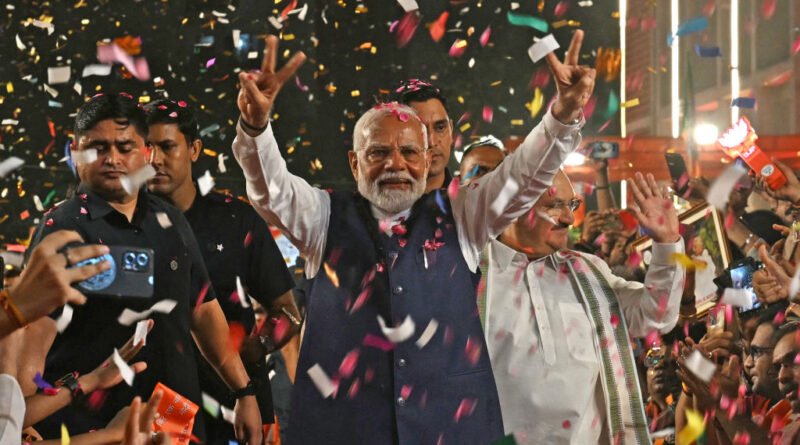India’s Election Results: A Fourfold Win for All Parties involved
A common saying suggests that every statement made about India is true, but the opposite is also true.
Commentary
The recent 18th general election in India has demonstrated that reports of Indian democracy’s demise have been greatly exaggerated.
The election was a significant success for the electoral system of the world’s most populous democracy.
Narendra Modi has achieved a rare feat by winning three consecutive elections, a milestone not seen since the time of Prime Minister Jawaharlal Nehru.
The prevailing cliché that every assertion about India, as well as its opposite, holds some truth, remains relevant.
A Victory For India’s Electoral System
India boasts the most efficient, effective, and trustworthy electoral machinery in the world.
The elections were conducted over seven phases spanning 44 days from April 19 to June 1, with results mostly concluded by the end of the final day.
With 543 seats in the Lok Sabha, a party or alliance needs 272 seats to form the government. The ruling BJP’s strength decreased from 303 to 240 seats, while its alliance went from 354 to 293.
The Decline Of Brand Modi
The government presented itself as a symbol of continuity, leveraging the BJP’s widespread organizational reach, past governance success, welfare initiatives, and global image enhancement to secure votes.
However, the aura of invincibility surrounding Prime Minister Modi suffered a blow during this election, as opposition parties managed to unite against the BJP more effectively than in previous years.
Abusing State Power For Political Gain
Identity Politics
Interpreting The People’s Verdict
The election results represent a fourfold win:
- The BJP secures a third consecutive term to further its transformative goals.
- Coalition partners gain more influence in governance.
- The opposition, led by Congress, establishes a credible counterbalance to the government.
- Regional parties’ resurgence helps prevent over-centralization, preserving India’s unity.
As India embraces coalition governance, expect a more inclusive and centrist political landscape, influencing state and foreign policy decisions in the coming years.
Opinions expressed in this article are solely those of the author and do not necessarily reflect The Epoch Times’ views.




